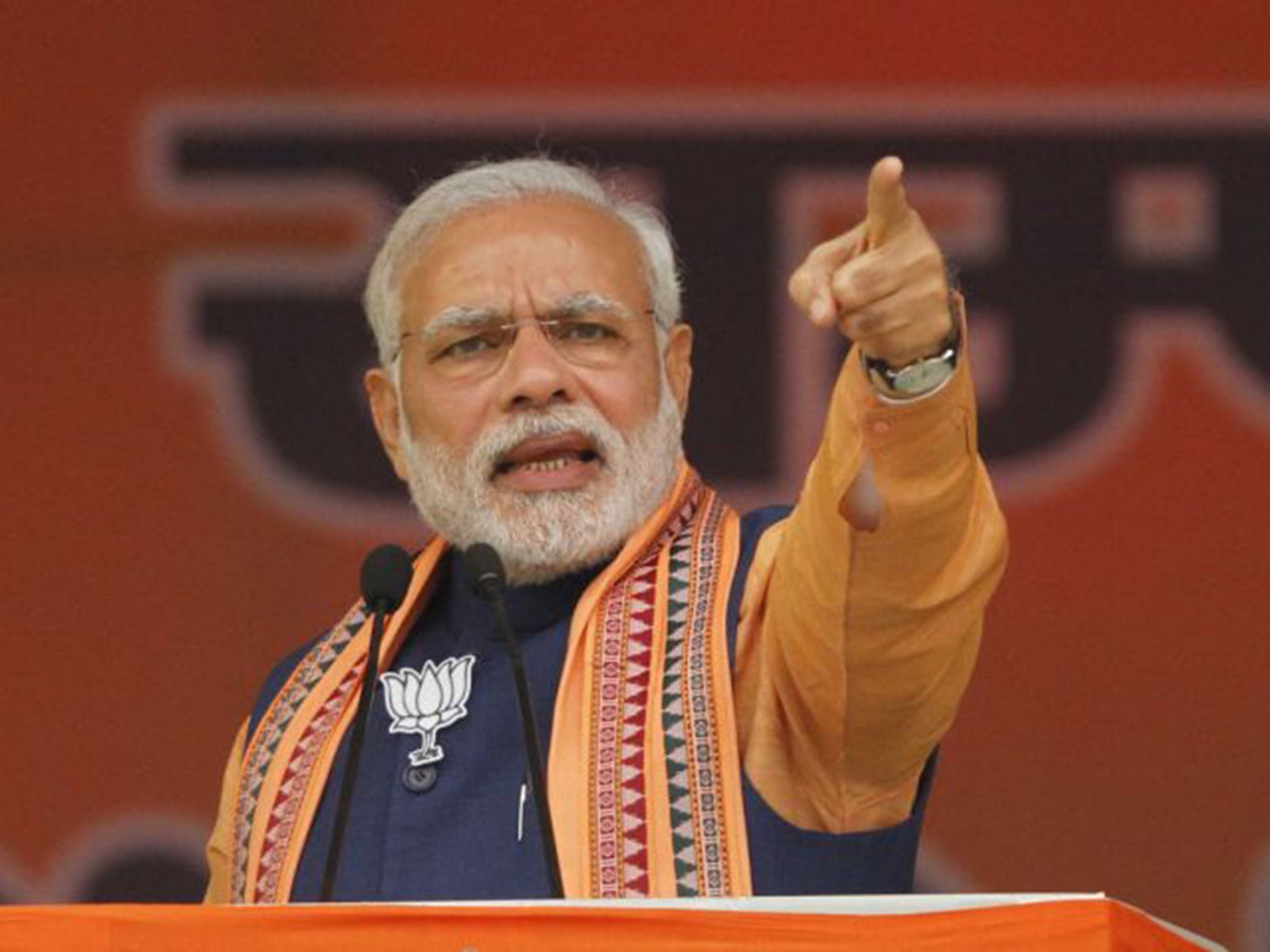Narendra Modi is no match for his multi-talented predecessors
Is he able to make Indians excited about being Indian?


Ruling India has always required the skills of a conjuror, the flair of a stage actor, and an instinct for the theatrical coup. Gandhi had all those qualities in spades, and for several years they trumped the farcical impracticality of most of his political ideas.
More recently the Hindu Nationalist leader Atal Bihari Vajpayee was similarly blessed – with his flights of poetical fancy; the long pauses in his speeches while he waited for inspiration to alight; and the sense of history that made him jump at the opportunity to address Pakistanis in Lahore. Likewise, the coup de théâtre of India’s nuclear tests, which were conducted immediately after he came to power, and drove much of India delirious with patriotic joy. In a country as wildly diverse as this one, the most sweeping of gestures are called for, the broadest of brushes.
Does Narendra Modi have such gifts? His landslide win in last year’s general election led one to think so. Some of his followers certainly feel that way: they have built a temple in his honour in his native state of Gujarat, its altar crowned with a colourful, bespectacled bust of the PM. But Mr Modi said he was “appalled” by the attempt to idolise him. “This is shocking,” he tweeted, “and against India’s great traditions.”
Mr Modi has more in the way of oomph than his colourless predecessor, Dr Manmohan Singh, a professorial economist through and through. But does he have what it takes – in terms of charisma and political imagination – to soar above his class, caste and religious origins, as Gandhi and Vajpayee did, and fire the imagination of Indians at large?
The answer from Delhi this week is a deafening “No”. In a major electoral test a mere eight months after he stormed to power nationwide, Modi’s Hindu Nationalist party (BJP) was humiliated in the polls, taking three seats out of 70. All the rest were won by a party that appeared out of nowhere in 2012, the Aam Aadmi or “Common Man” party, which campaigned on an anti-corruption ticket and is led by a taxman-turned-activist who has described himself as an anarchist.
The collapse of the nationalist vote will prompt a bout of soul-searching by the BJP, whose support has fluctuated wildly over the years. Congress – now, it appears, in terminal eclipse, having lost all its Delhi seats – became India’s default ruling party in the early years of independence because it was explicitly and proudly secular and anti-communal: although most of its leaders were Hindus such as Gandhi and Nehru, it went out of its way to include Muslims, Sikhs and other minorities, and to preach a secular creed that was acceptable to the country as a whole.
The BJP was the anti-Congress party – best symbolised by Nathuram Godse, Gandhi’s assassin, who, not coincidentally, is now enjoying posthumous rehabilitation. Inspired by Mussolini and Hitler, the BJP in its origins was militantly Hindu, and for a long time was strongly identified with the elite Brahmin caste. Its explosions of growth were caused by communal, usually anti-Muslim eruptions, such as the mob demolition of a mosque supposedly built on the birthplace of the Hindu god Rama, and the anti-Muslim pogrom over which Mr Modi presided serenely while he was first minister of Gujarat.
But, as Mr Vajpayee understood so clearly, you have to do better than that to lead India. Mr Modi is the first supreme leader of the BJP to have come from much farther down the caste system than Mr Vajpayee and his peers – he often boasts about his early years working in a tea shop with his father; he has said that the government must “think about the poor, listen to the poor and exist for the poor”; and he devoted much of his first independence day speech to a rousing sermon on the need for more lavatories. All worthy stuff.
But making Indians feel excited about being Indian? That’s a different order of challenge.

Join our commenting forum
Join thought-provoking conversations, follow other Independent readers and see their replies